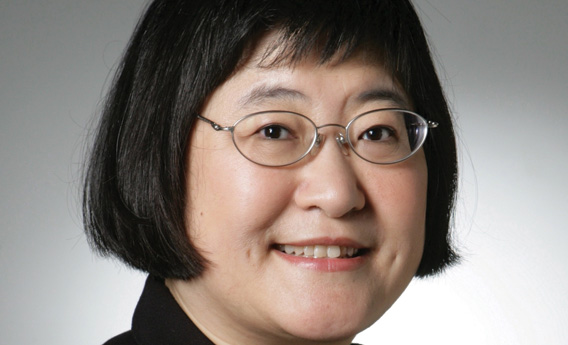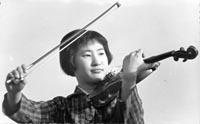Focus On: Chen Yi

Focus On
Listen
The middle child of two medical doctors in Guangzhou, Chen Yi began violin and piano studies at age three. Some 12 years later, when each family member was sent to a different corner of the country for “re-education,” the young violinist would entertain peasants and soldiers—in between bouts of back-breaking labor—by spicing Revolutionary songs with Paganini-like embellishments. “It was during that period that I found my roots,” she recalls. “I grew to appreciate the simple people, and it made me listen to the Western musical language I’d studied in an entirely different way.”
Two years later, she was sent back to Guangzhou, assigned to the local Peking Opera troupe as both concertmistress and composer. Only after she was accepted at Beijing’s Central Conservatory did she have to choose between the two. Even though she chose to study composition, she never put her violin away for long. Chen won first prize in the conservatory’s string quartet competition as an undergraduate, and it was her own ensemble that had performed each of the entries.
The juxtaposition of influences from her youth—a performer’s knowledge of the instruments combined with a fascination of reconciling different musical languages—has defined most of Chen’s music, which has garnered her prestigious commissions and fellowships. “At some level, all the instruments of the world divide into wind, percussion or strings, either bowed or plucked,” she says. “Whenever I write a piece for Western instruments, my first thought is to find the similarities. The erhu, for example, is just a vertical violin. Once you establish [this understanding of similarities], you create techniques where one instrument can imitate another.”
In Chen Yi’s Own Words
On the Class of 1978:
“We all learned Chinese traditional music—not just the language and the instruments, but the thinking behind it. And we do share some of the same techniques because we were all educated at the same time. But we all aim in different directions. When I compose, I don’t think of anyone else.”
On the Cultural Revolution:
“My Dad was a huge classical music fan, and when I was little he played those records every night at dinner. During the Cultural Revolution, our home was searched and everything was taken. But before that, my mother had told me, nothing can be treasured except for the knowledge in your brain. So I’d shut my windows and listened to the records every day, and for two years I memorized all the textures.”


